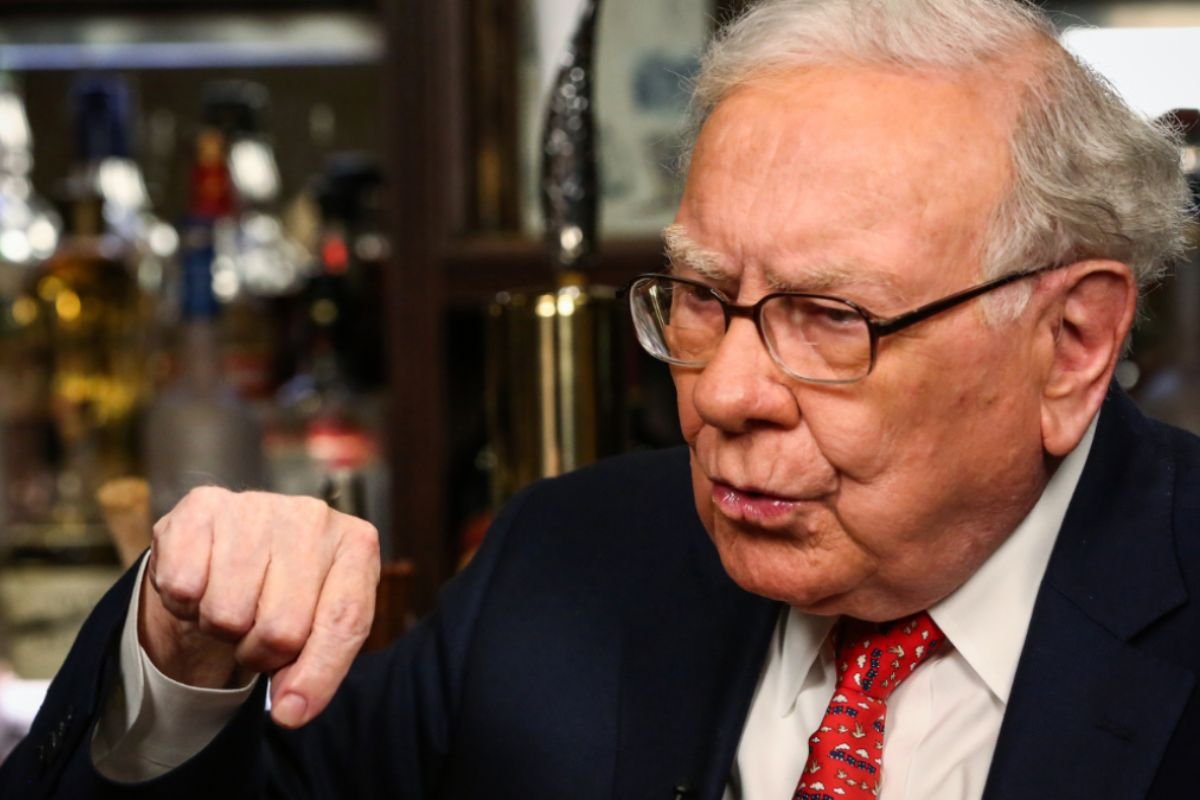Source – biznews.com
Market Reaction to Buffett’s Moves:
Warren Buffett, the renowned investor and CEO of Berkshire Hathaway Inc., has recently made significant reductions in his stock holdings, including a notable decrease in his stake in Apple Inc. This move has triggered concern among market participants, many of whom view Buffett as a bellwether for broader market trends. The revelation of Warren Buffett stock sell-off led to a swift and sharp reaction in the financial markets, contributing to a nearly 3% drop in the S&P 500 Index. While the exact influence of Buffett’s actions on this decline is difficult to quantify, it is clear that his decision has added to the already negative sentiment.
Warren Buffett stock sell-off, particularly his reduction in Apple, has led some to believe that the “Oracle of Omaha” is preparing for a significant downturn in the stock market. However, the motivations behind his actions are more complex than they may appear at first glance. Despite the nuances in Buffett’s strategy, the rapid spread of concern among investors has already had a tangible impact on market behavior, exacerbating an existing sense of instability.
Berkshire’s Growing Cash Reserves:
One of the most striking aspects of Berkshire Hathaway’s recent financial disclosures is the substantial increase in the company’s cash reserves. As of the latest report, Berkshire’s cash and equivalents have reached a record $276.9 billion. This amount is comparable to levels last seen before the financial crisis of the mid-2000s, a period when Buffett famously capitalized on market turmoil to acquire valuable assets at discounted prices.
For several quarters, Berkshire’s growing cash reserves were downplayed, as they seemed proportionate to the company’s overall size. However, with cash levels now at historic highs, this trend can no longer be ignored. The accumulation of such a large cash reserve could indicate that Buffett is positioning Berkshire to take advantage of potential future opportunities, perhaps anticipating a market downturn where cash-rich companies can scoop up distressed assets at favorable prices.
Economic and Market Vulnerabilities:
Warren Buffett stock sell-off and Berkshire’s burgeoning cash reserves come at a time of heightened economic and market vulnerabilities. The U.S. economy has been supported in recent years by three main pillars: excess savings, low unemployment, and high asset prices, particularly in large-cap stocks. However, these pillars are beginning to show signs of weakness. Excess savings have been steadily declining, and recent developments suggest that personal wealth and the labor market may no longer be as robust as they once were.
Last week, the Bureau of Labor Statistics reported an increase in the unemployment rate to its highest level in nearly three years. This news, coupled with the Federal Reserve’s decision not to cut policy rates, triggered a wave of selling in the stock market. Buffett’s disclosure of his stock sales only added to the growing sense of unease, further undermining confidence in the market’s stability.
In summary, Warren Buffett stock sell-off and Berkshire Hathaway’s record cash reserves have sent shockwaves through the financial markets, contributing to a broader sense of uncertainty. As the U.S. economy faces increasing challenges, investors are left to ponder the implications of Buffett’s actions and the potential for further market volatility.









